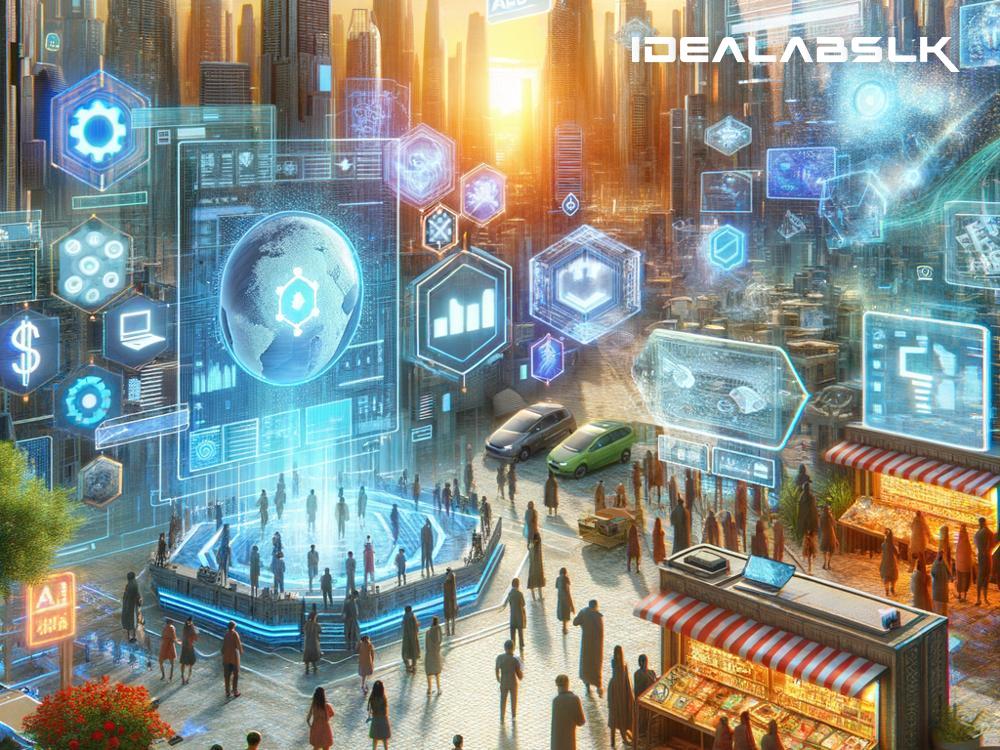Title: The Future of Gaming Economies: AI's Big Role in 2025
In the vast and ever-evolving world of video games, one element that has continually fascinated players is the in-game economy. Over the years, we've seen these virtual economies grow from simple trade systems in role-playing games to complex markets in online multiplayer worlds. With technology advancing at a lightning pace, it's no surprise that Artificial Intelligence (AI) is set to play a significant role in shaping the future of these virtual economies by 2025. So, let's dive into how AI is forecasted to transform the way we buy, sell, and trade in our favorite digital landscapes.
The Rise of Smart Economies
As we approach 2025, AI technology is becoming increasingly sophisticated, enabling game developers to create more dynamic and intelligent in-game economies. These AI-driven economies will be capable of much more than ever before, providing players with a more immersive and interactive experience. Imagine entering a virtual marketplace where prices fluctuate based on real-world economic principles, supply and demand dynamics change according to player behavior, and non-player characters (NPCs) bargain with you based on your past interactions. This is the future we're looking at!
Personalized Trading Experiences
One of the most exciting aspects of AI in gaming economies is personalization. With AI, the in-game economy can adapt to individual player behavior, creating a unique trading experience for everyone. For instance, if you're known as a shrewd trader, NPC merchants might be more cautious or offer you special deals to win your favor. Similarly, the game could introduce rare items to the economy that only appear based on the specific actions you've taken, adding an extra layer of strategy to your gameplay.
Dynamic and Self-Regulating Markets
AI will not only personalize the economy but also make it more dynamic. In 2025, we can expect to see in-game markets that self-regulate based on player interactions. If a particular item becomes too common due to overproduction, its value may decrease, encouraging players to explore new goods or services. Conversely, rare items could see their prices skyrocket, sparking player-driven quests to find or create them. This constant fluctuation will make the virtual economy feel alive and more closely mimic the unpredictability of the real world.
Fighting In-Game Inflation
In-game inflation has been a headache for both players and developers in past years, leading to imbalance and diminishing the value of in-game currency. However, AI can help manage this by automatically adjusting variables behind the scenes to ensure the economy remains stable. For example, if the AI detects too much currency in circulation, it might introduce new sinks (ways to spend money on non-tradable or consumable items) or adjust drop rates to keep the economy balanced. This means a healthier game environment for everyone involved.
Enhanced Security and Fair Play
AI's role in virtual economies isn't limited to improving gameplay. It's also set to enhance security and ensure fair play. By analyzing vast amounts of transaction data, AI can spot unusual patterns and identify potential fraud or cheating, like players exploiting bugs to generate in-game currency. This means a fairer playing field and a more trustworthy economy where hard work and strategy pay off, not just exploiting glitches.
Conclusion
Looking towards 2025, the fusion of AI and virtual economies promises to revolutionize our gaming experiences. This isn't just about making games more enjoyable; it's about creating living, breathing worlds where economies react and evolve based on our actions. AI-driven economies will offer a more personalized, dynamic, and fair gaming environment, making our virtual adventures more immersive than ever before.
As we step into these future worlds, we'll find ourselves not just playing a game but participating in a complex ecosystem that mirrors the excitement and unpredictability of our own economy. The possibilities are endless, and one thing is clear: the future of gaming economies, driven by AI, is bright and full of potential. So, let's brace ourselves for an exciting journey into the heart of these virtual worlds come 2025!

